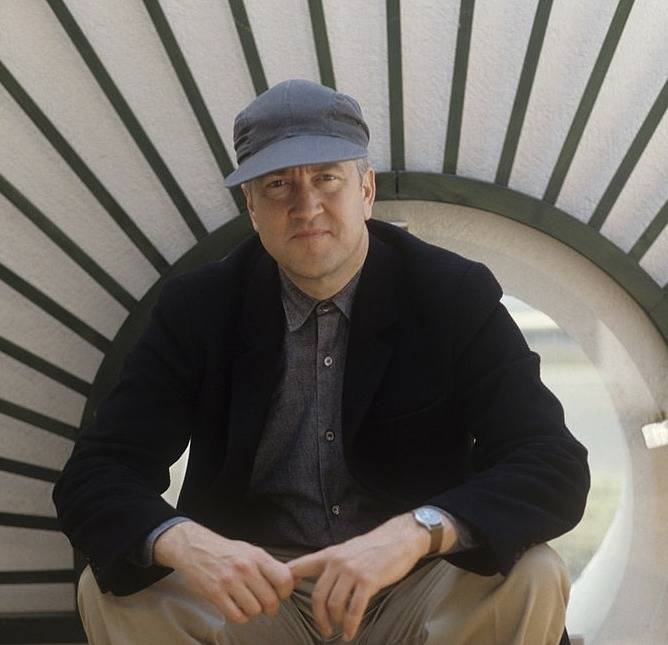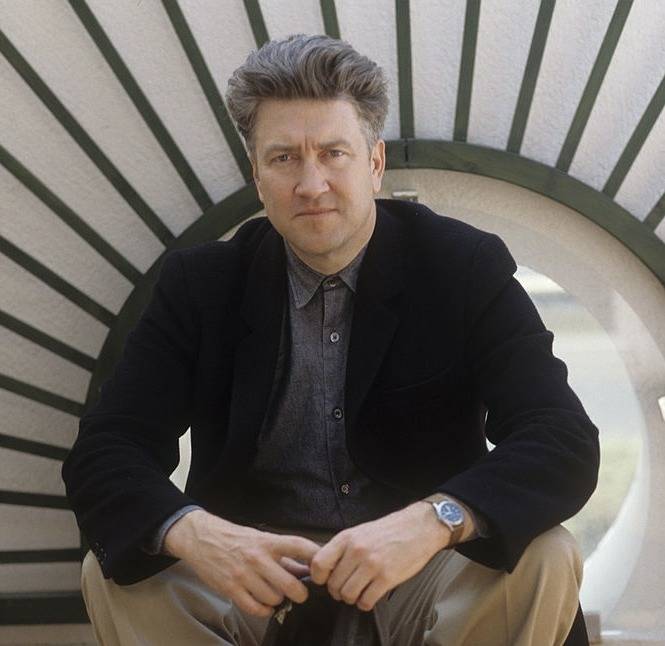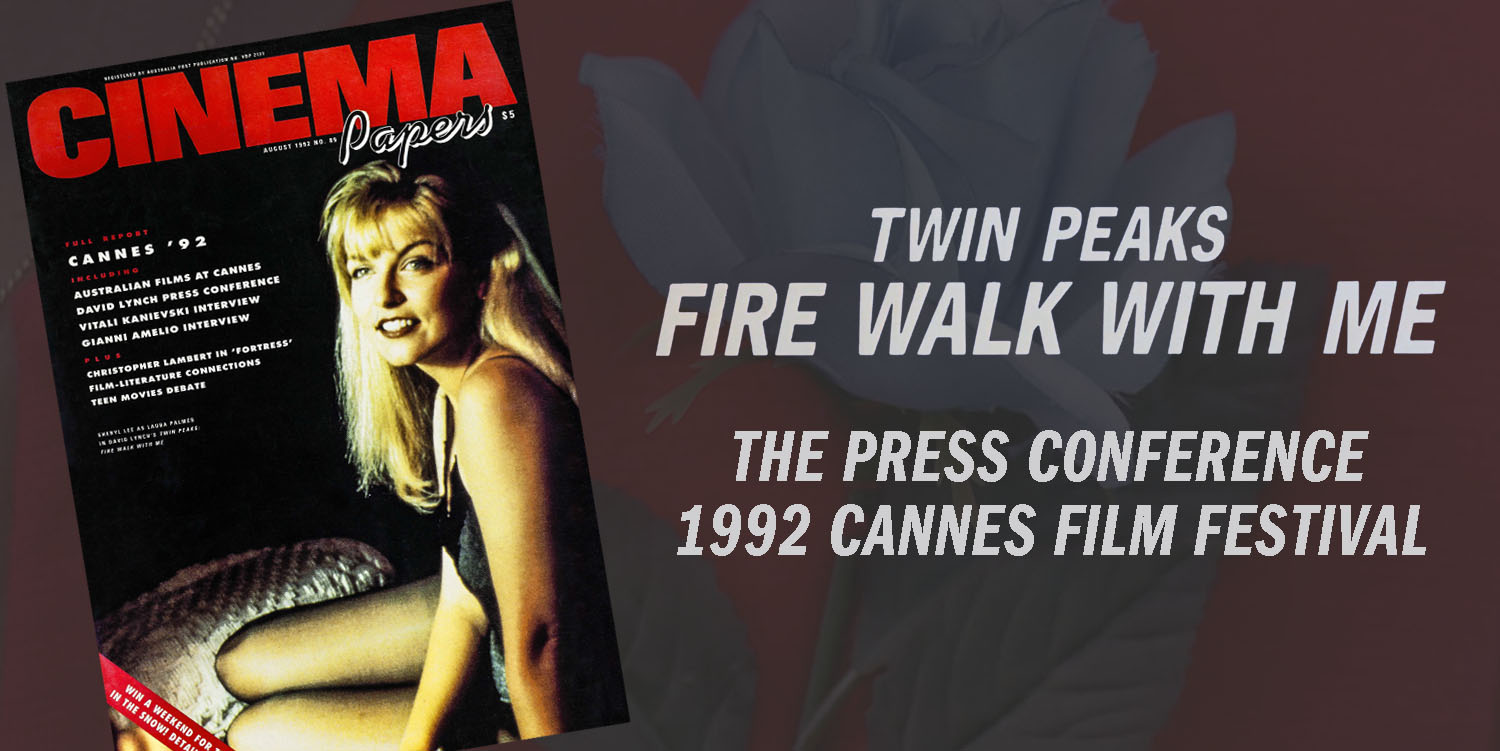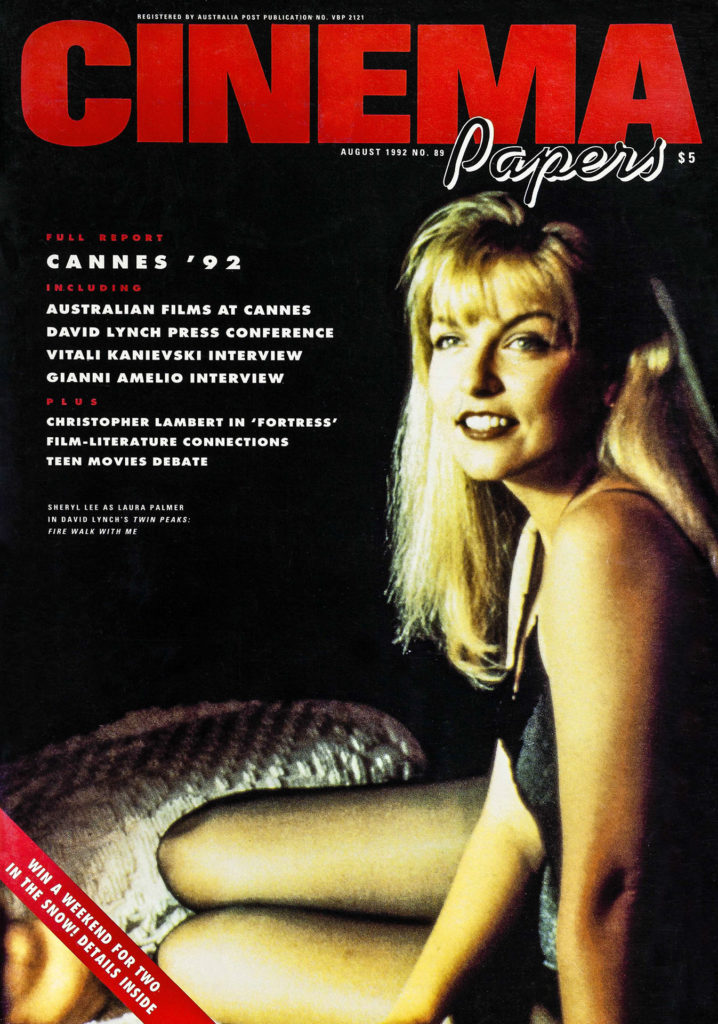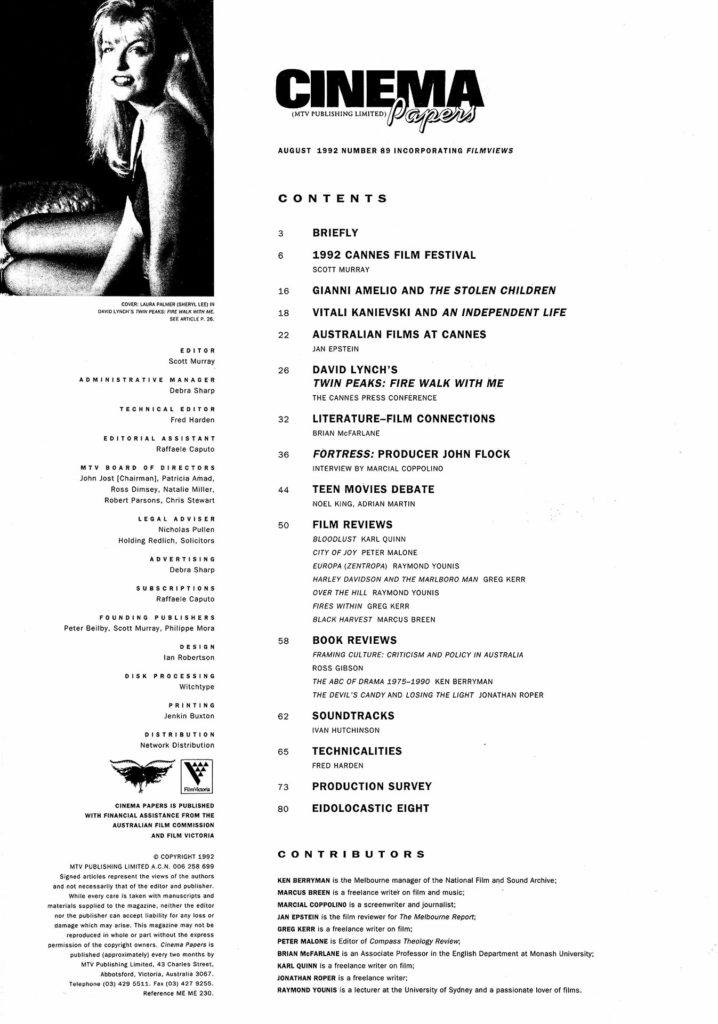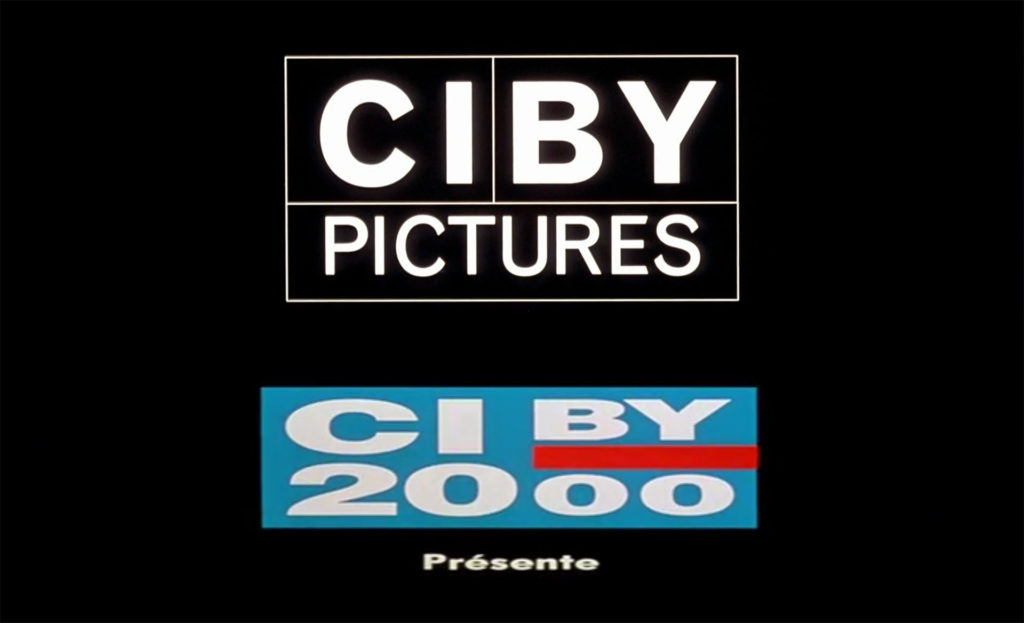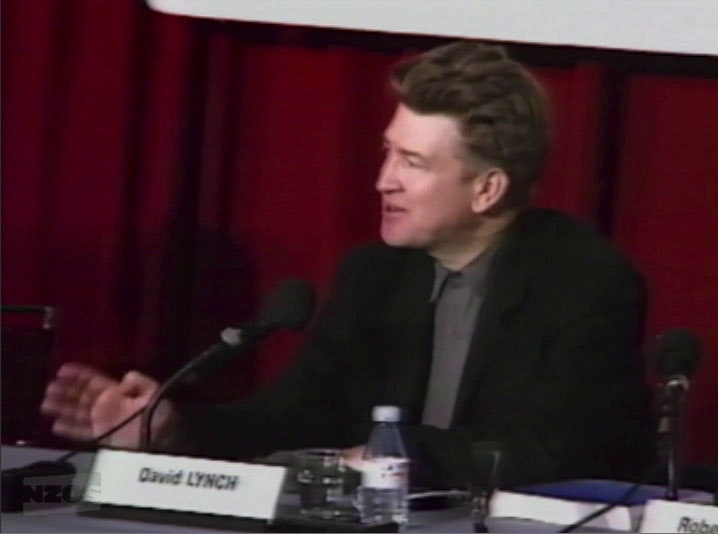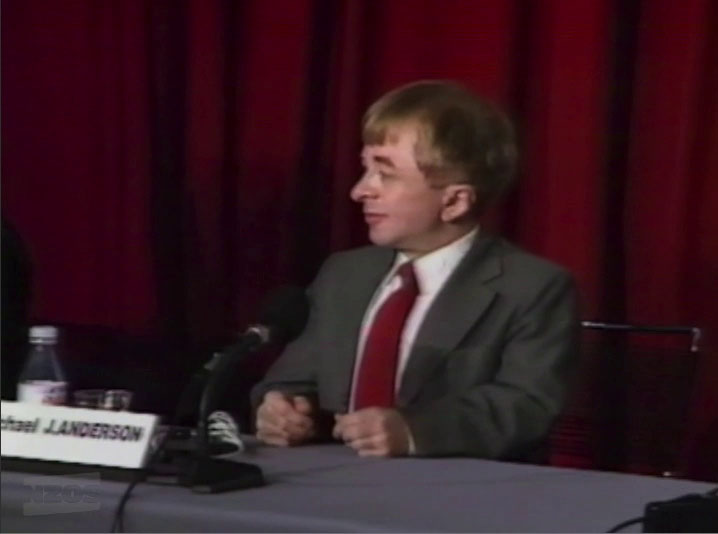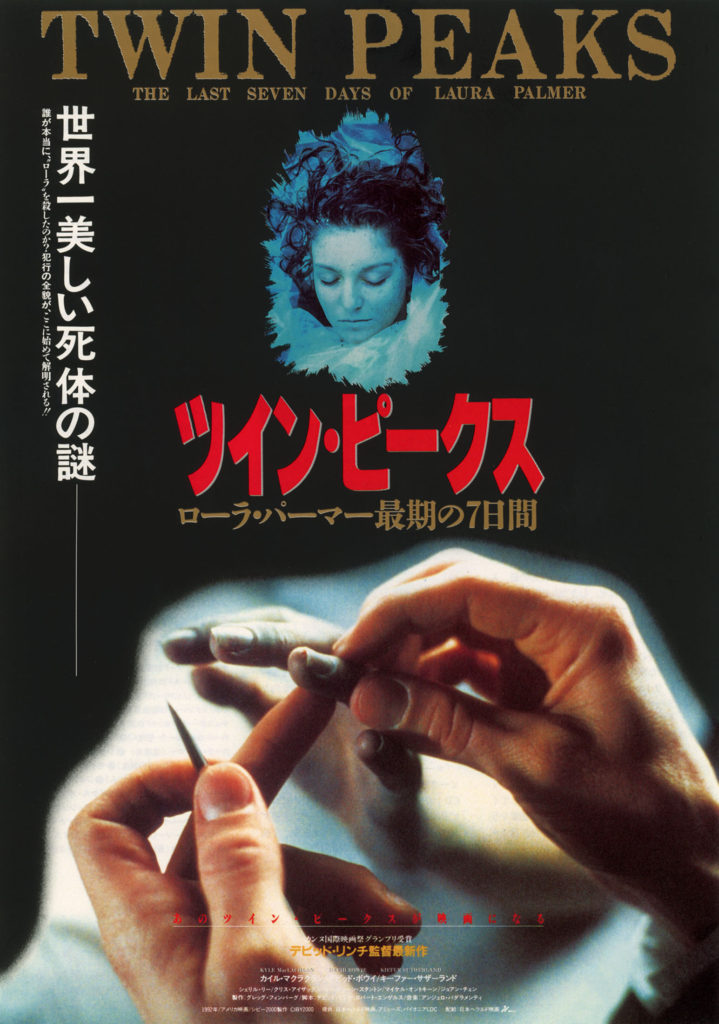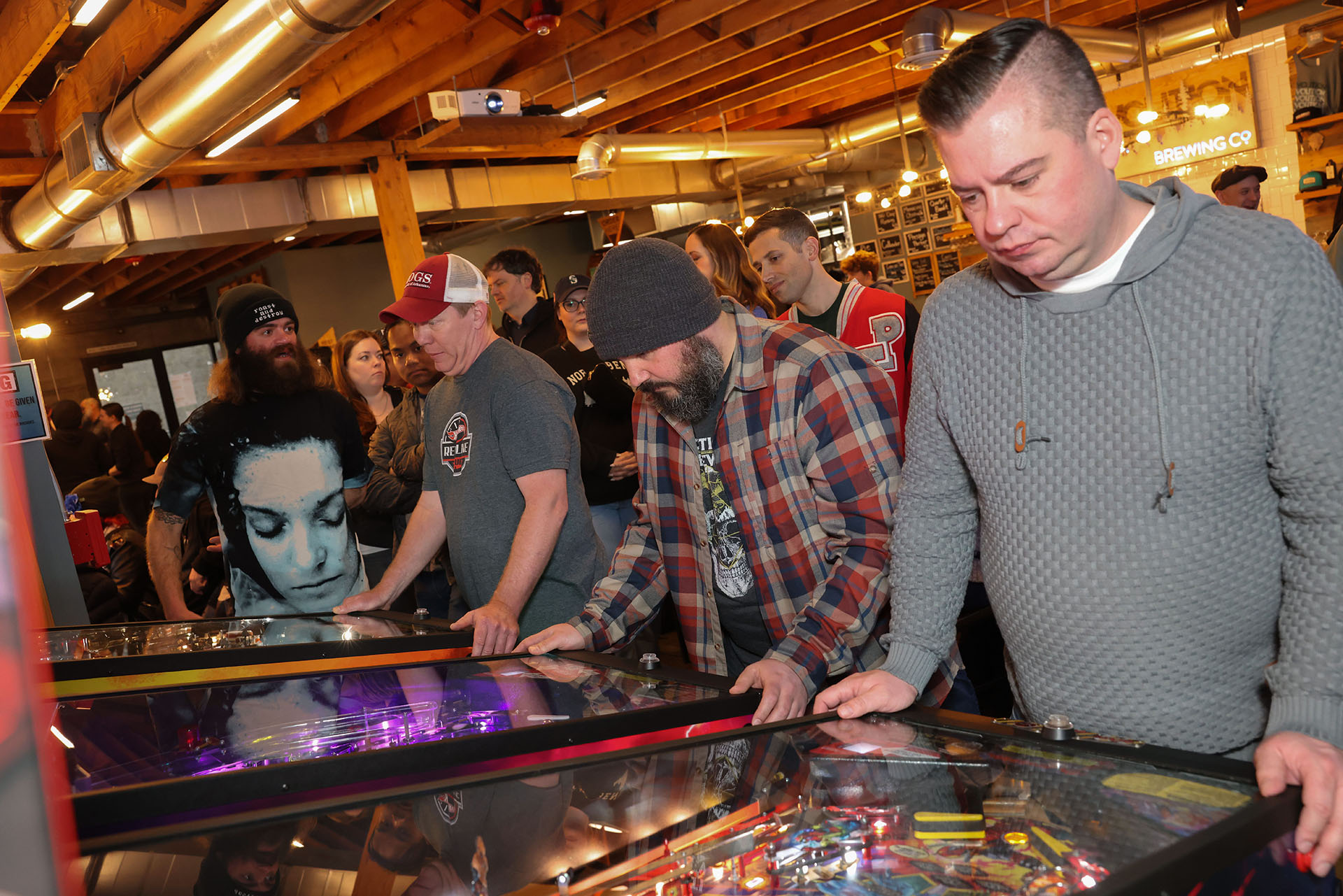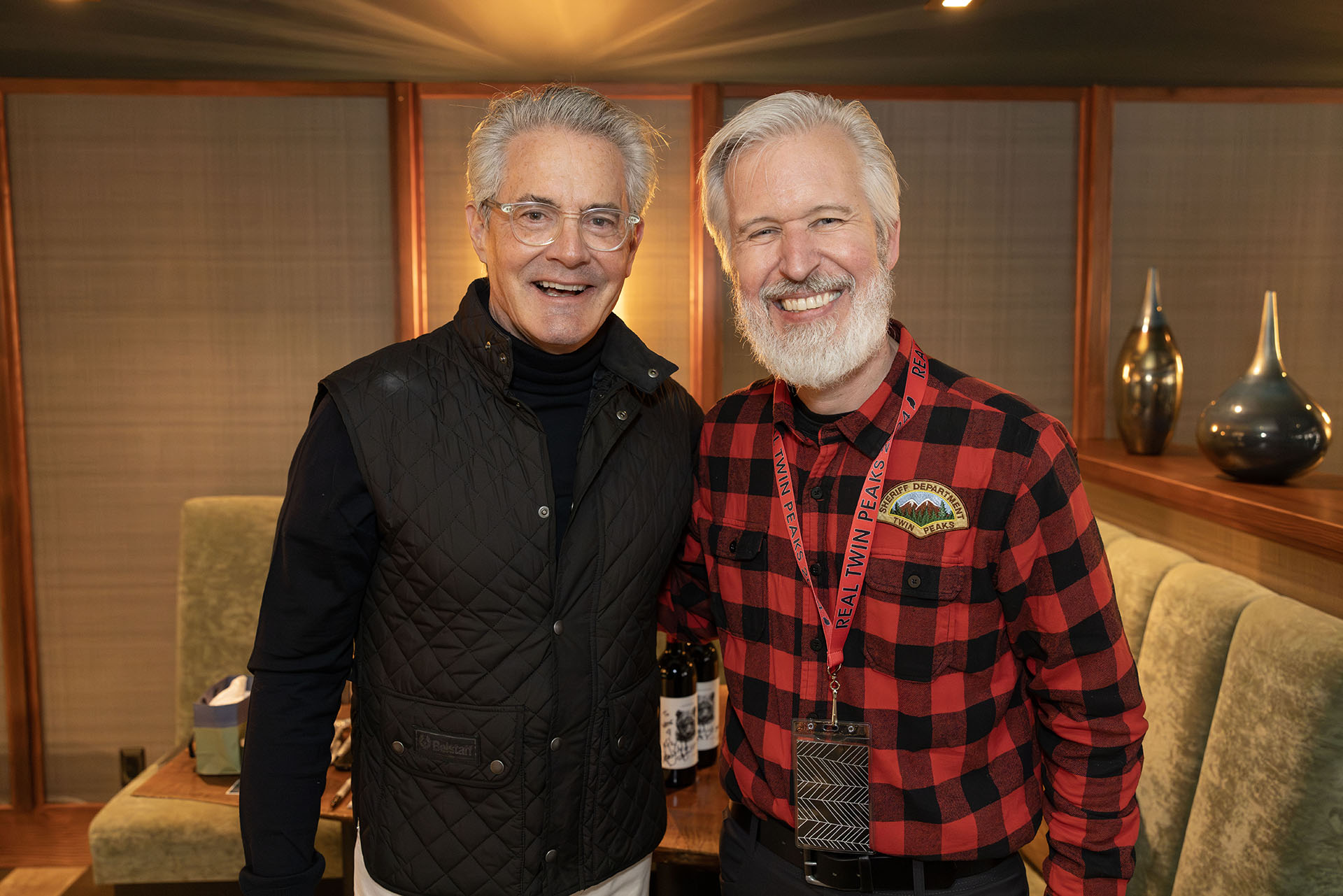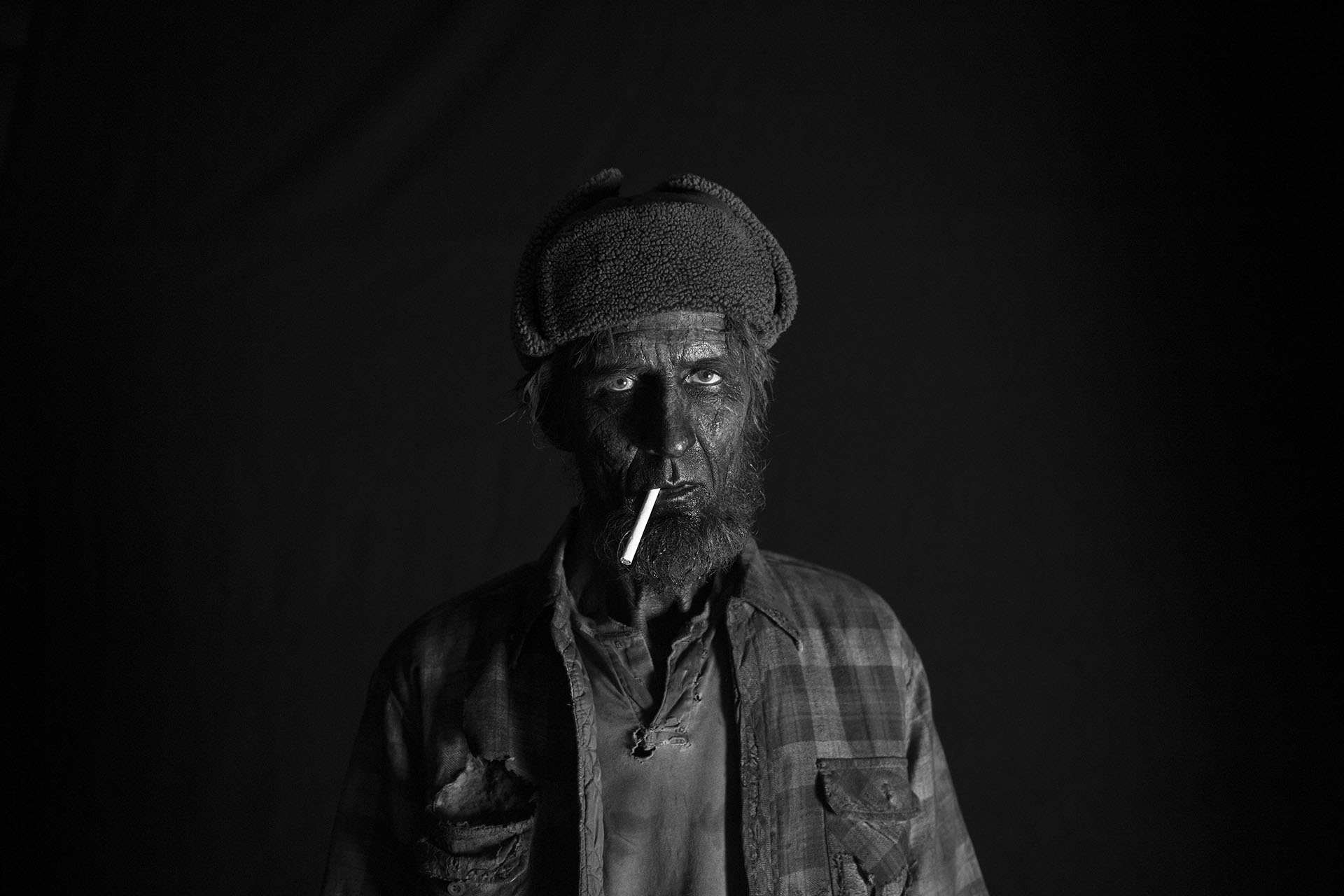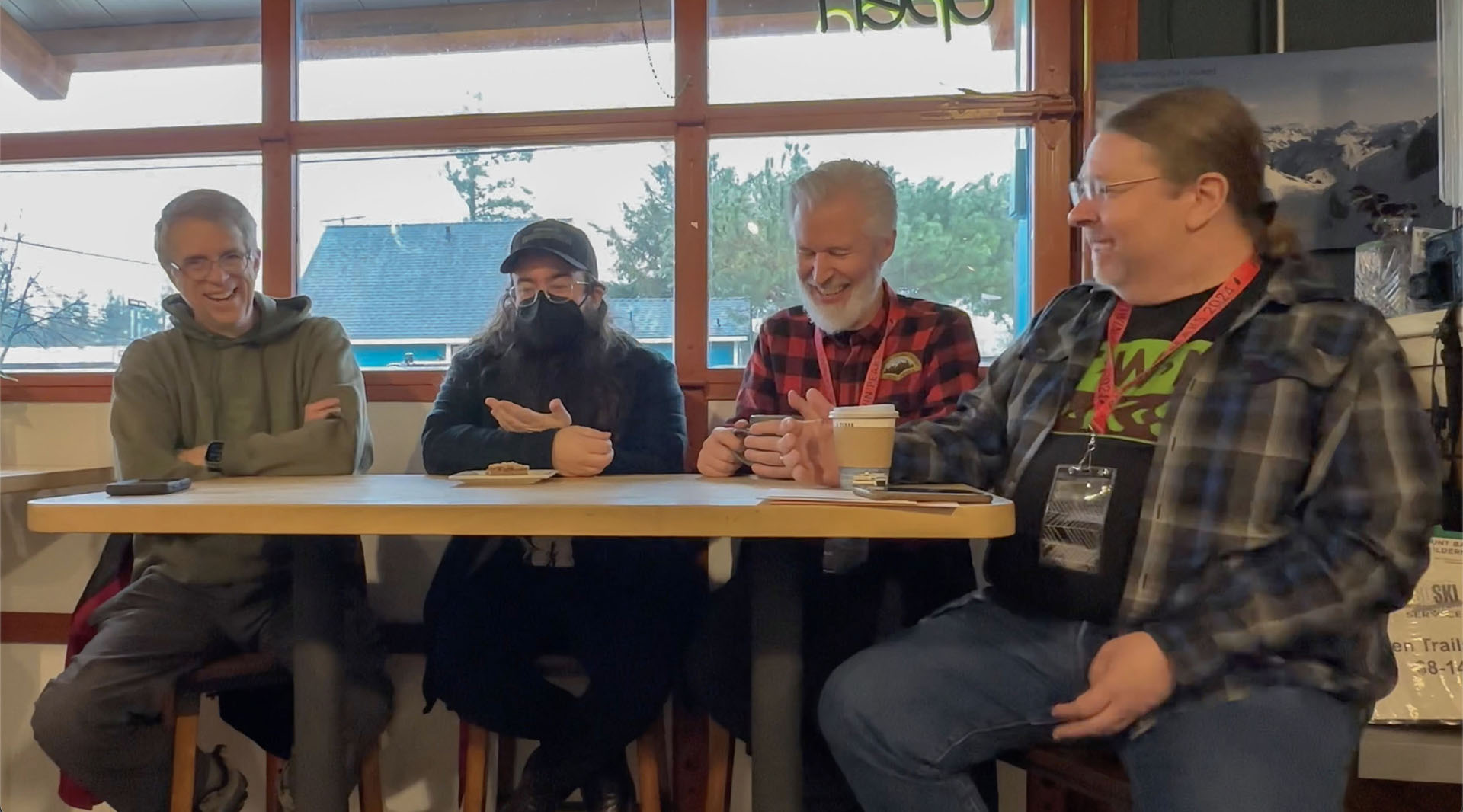Fellow author Dugpa recently published the definitive look at the premiere of David Lynch’s Twin Peaks – Fire Walk With Me at the 1992 Cannes Film Festival. I wanted to take a closer look at the press conference following the press screening held the morning of May 16 . This was the only screening where the story that everyone booed and hated the film originated. Thanks to Dugpa’s research, we know the general audience cheered for Team Lynch following world premiere that evening. Yet, some folks did shout “boos” after the press screening, which set the stage for a rather interesting press conference.
CINEMA PAPERS ARTICLE ABOUT 1992 CANNES PRESS CONFERENCE
During our research about the Cannes Film Festival, we discovered extensive coverage in the now defunct Australian magazine called Cinema Papers.
Originally launched in 1974 by Peter Beilby, Phillippe Mora and Scott Murray, the publication reported on film production, contained interviews with filmmakers and actors, and offered reviews. While the publication ceased being made in 2001, you can find digitized copies online at the University of Wollongong Australia.
The August 1992 issue (No. 89) contained extensive coverage of the Cannes Film Festival. This included a write up of David Lynch’s press conference by Scott Murray. I’m thankful to Mr. Murray for capturing these notes as they are one of the few records of what really happened during the event.
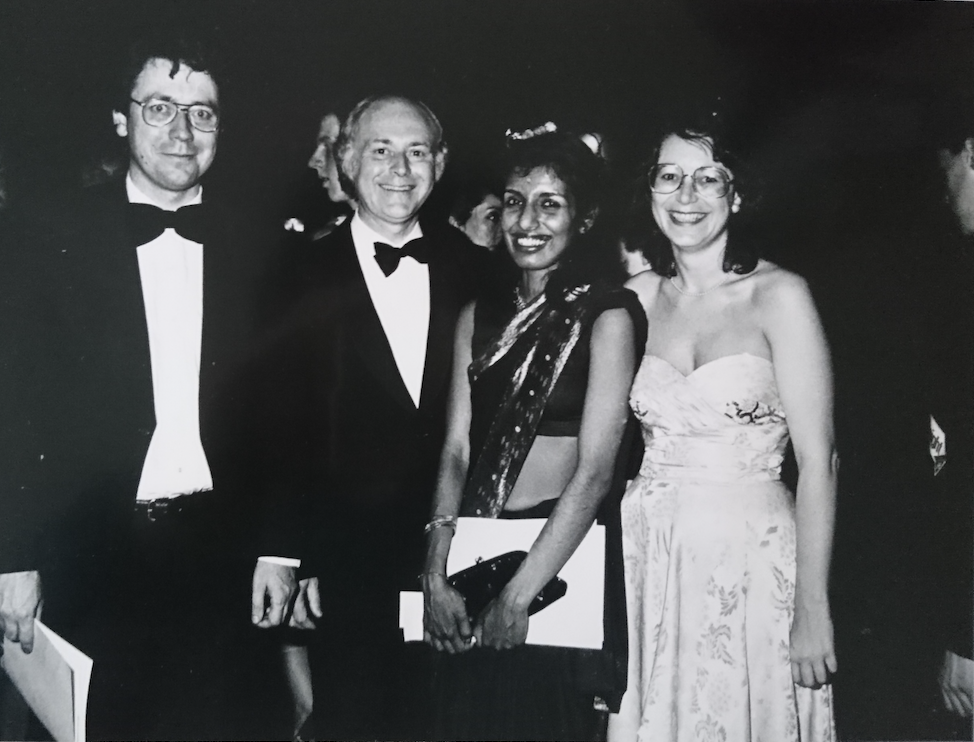
Scott Murray (pictured far left) was the son of John B. Murray, one of the pioneers of the modern Australian cinema. John was the “first director of the Film, Radio and Television Board at the Australian Council for the Arts, which later became the Australia Council and subsequently was transferred to the Australian Film Commission when it was established in 1975.” He would go on to write, direct and produce a variety of films and productions. He passed on June 1, 2020. (if.com.au)
With his father immersed in the film world, it’s no wonder then that Scott got involved with Cinema Papers. After the publication ceased, Scott continued writing articles for SensesOfCinema.com until 2009.
MURRAY’S FILM REVIEW OF TWIN PEAKS: FIRE WALK WITH ME
Scott offered an extensive review of several films shown at the 1992 festival including Twin Peaks: Fire Walk With Me.
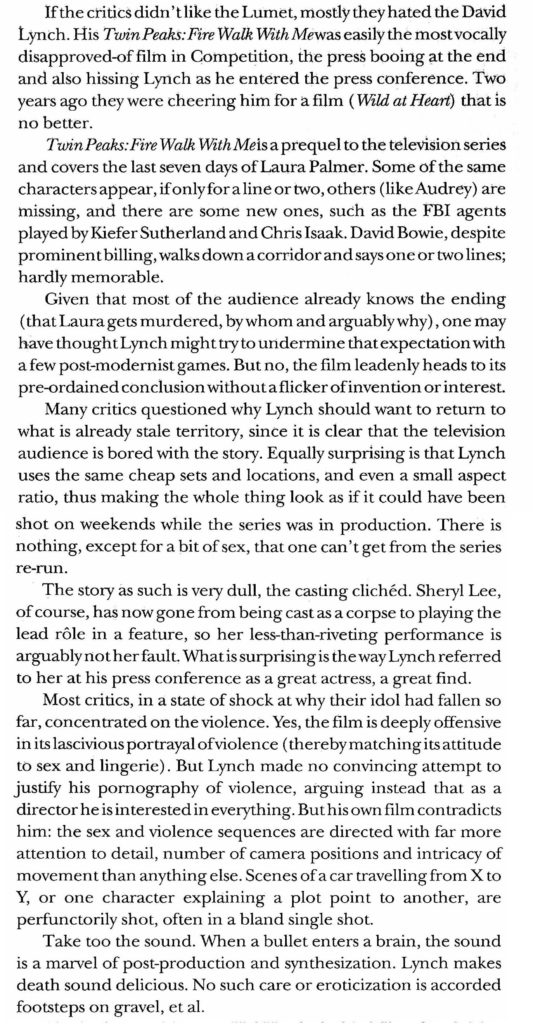
He confirms that critics”hated the David Lynch” (how anyone could hate THE David Lynch is beyond me!). He said Lynch’s film was easily the most “vocally disapproved-of film in the Competition, the press booing at the end [of the film] and also hissing as Lynch entered the [press] conference.” Again I ask, why?
Murray also didn’t care for the film, saying the story “is very dull, the casting cliched.” He continued stating that most critics were in “a state of shock at why their idol had fallen so far, concentrated on the violence.” Remember, Lynch won the coveted Palme d’Or award at the Cannes Film Festival two years earlier for Wild At Heart, so critics were anxious to see his follow up film.
Violence in films at Cannes that year was something of a lighting rod, especially for critics. In Murray’s review, he is critical of Lynch not justifying his “lascivious portrayal of violence.” This theme will be revisited from reporters and critics during the conference.
In 1993, SBS from Australia ran an interview with David captured during Cannes (See this link).
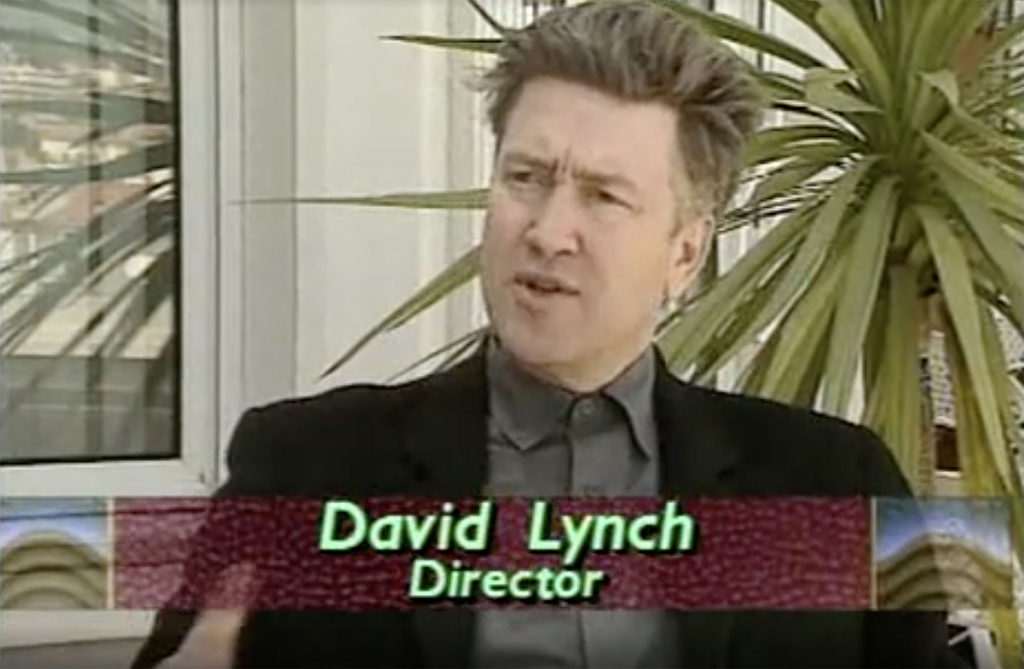
I’m guessing it was recorded following the press conference as he shares his views about reactions to his films:
“There has never been a film, of mine anyway, that everybody likes. So people seem to be violently divided. It’s just the way it is. Then some time goes by and then the film seems … to be regarded differently, you know six months later or a year later. When they first see a film, it’s many strange reactions.”
THE PRESS CONFERENCE FOR TWIN PEAKS: FIRE WALK WITH ME
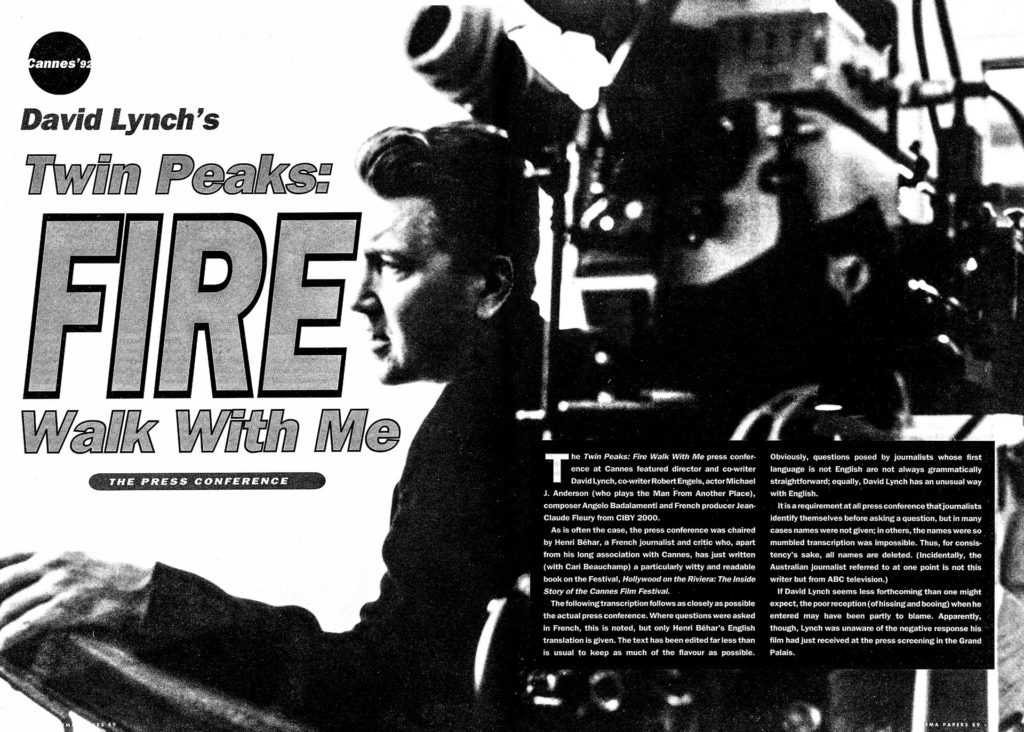
Cinema Papers devoted six pages (!!) to covering the Lynch’s press conference offering a literal transcript of what took place. While some things are not accurately translated, you get a full picture of how contentious the conference was. Lynch didn’t attend the press screening, so he had no idea of the critical reactions from some press.
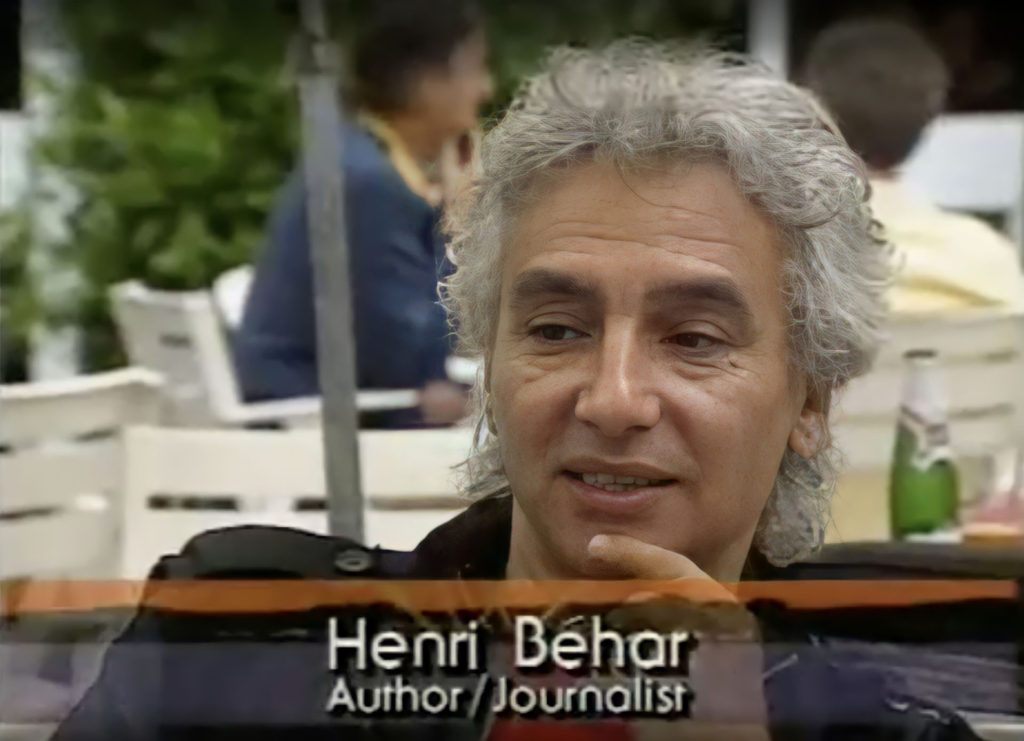
The panel was moderated by Henri Behar, who co-wrote “Hollywood on the Riviera: The Inside Story of Cannes Film Festival” with Cari Beauchamp in 1992. He was also known for providing subtitles many well-known films, and moderated many discussions following press screenings.
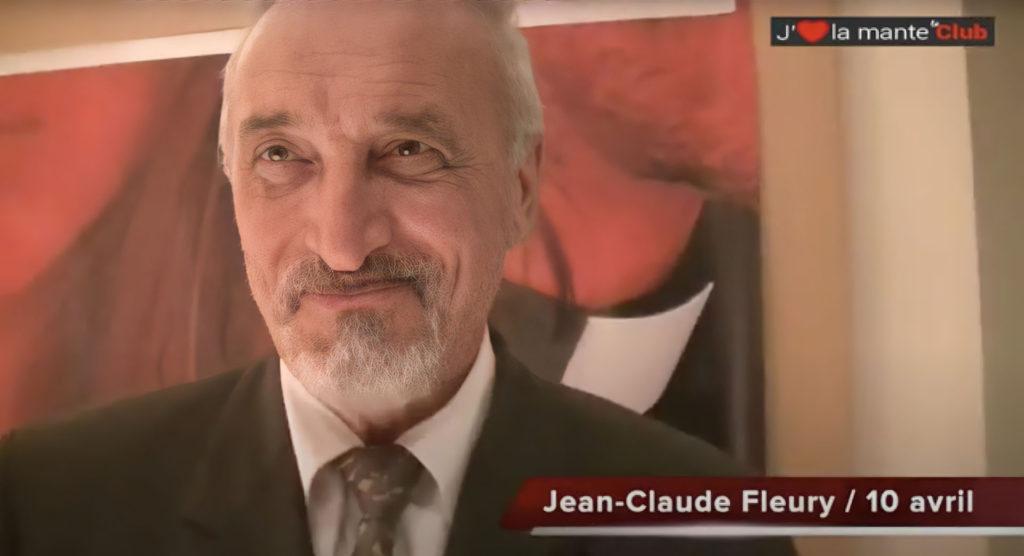
The panel discussion was attended by Lynch along with co-writer Bob Engles, Angelo Badalamenti, Michael J. Anderson and French producer Jean-Claude Fleury from CIBY 2000.
Dugpa provided this short video of David Lynch and Michael J. Anderson answering some questions at the press conference. It’s amazing to hear him!
PRESS QUESTIONS ABOUT TWIN PEAKS: FIRE WALK WITH ME
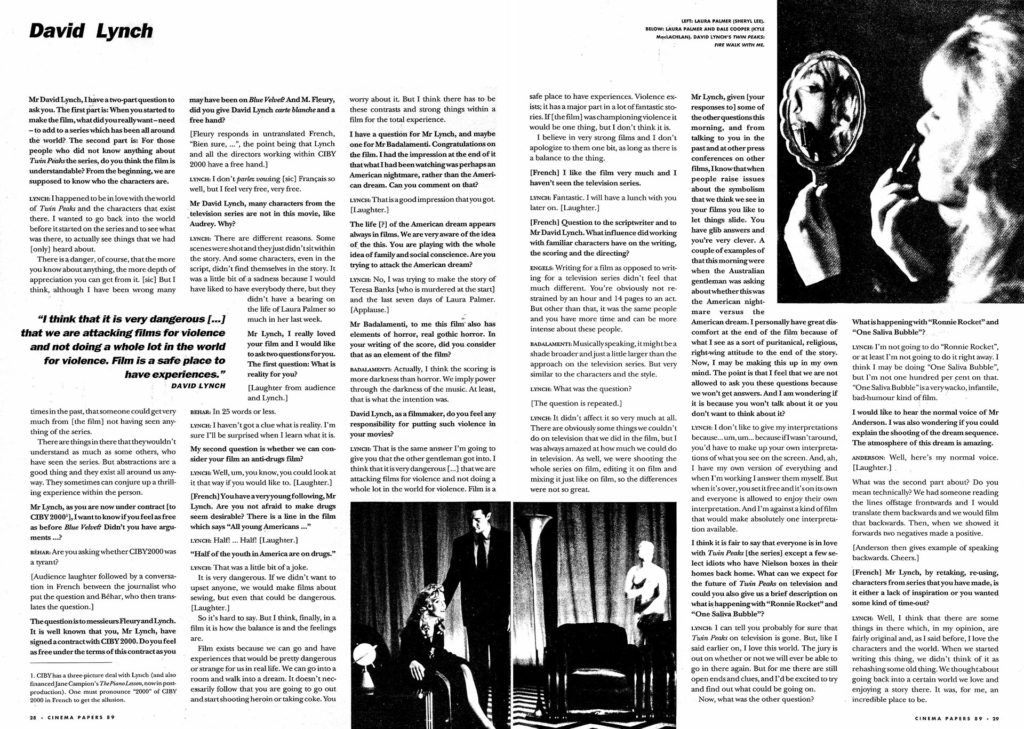
Mr. David Lynch, I have a two-part question to ask you. The first part is: When you started to make the film, what did you really want – need – to add to a series which has been all around the world? The second part is: For those people who did not know anything about Twin Peaks the series, do you think the film is understandable? From the beginning, we are supposed to know who the characters are.
LYNCH: I happened to be in love with the world of Twin Peaks and the characters that exist there. I wanted to go back into the world before it started on the series and to see what was there, to actually see things that we had [only] heard about.
There is a danger, of course, that the more you know about anything, the more depth of appreciation you can get from it. [sic] But I think, although I have been wrong many times in the past, that someone could get very much from [the film] not having seen anything of the series. There are things in there that they wouldn’ t understand as much as some others, who have seen the series. But abstractions are a good thing and they exist all around us anyway. They sometimes can conjure up a thrilling experience within the person.
Mr. Lynch, as you are now under contract [to CIBY 2000], I want to know if you feel as free as before Blue Velvet Didn’t you have arguments …?
BEHAR: Are you asking whether CIBY 2000 was a tyrant? [Audience laughter followed by a conversation in French between the journalist who put the question and Behar, who then tranlates the question.]
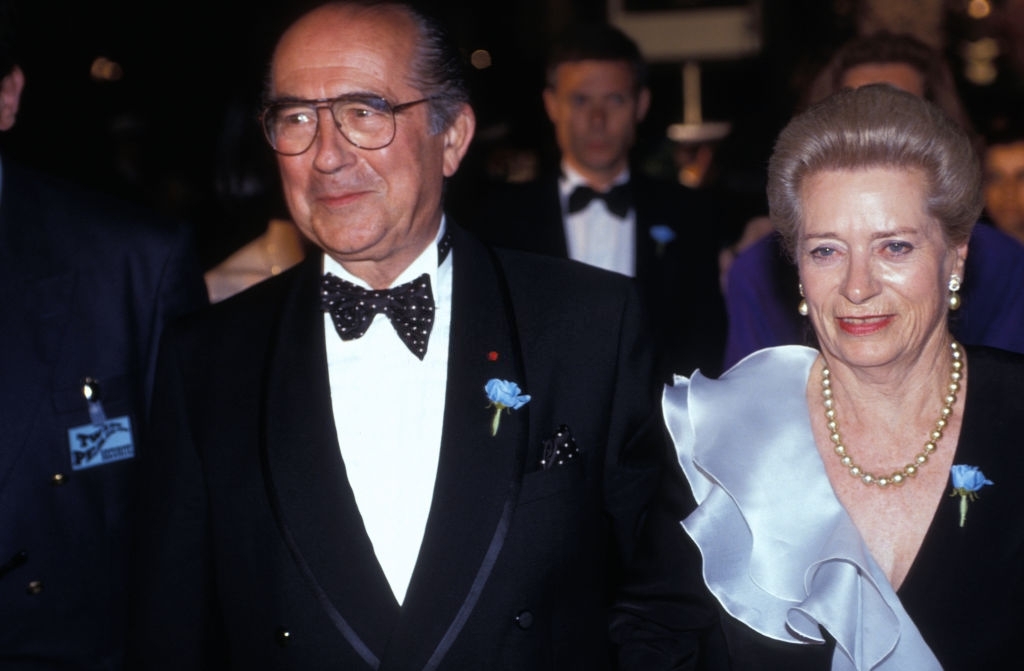
NOTE – CIBY 2000, which was founded in 1990 by Francis Bouygues. The name of this French film production and distribution company was a play on Hollywood legend Cecil B. DeMille or C.B. DeMille. In French, “2000” is said as “deux mille.”
Sadly, Bouygues died of a heart attack on July 24, 1993 at age 70. The last time he was seen in public was in May 1992. Lynch had a three-picture deal with CIBY at the time.
The question is to messieurs Flury and Lynch. It is well known that you, Mr. Lynch, have signed a contract with CIBY 2000. Do you feel as free under the terms of this contract as you may have been on Blue Velvet? And M. Fleury, did you give David Lynch carte blanche and a free hand?
[Fleury responds in untranslated French, “Bien sure, …”, the point being that Lynch and all the directors working within CIBY 2000 have a free hand.]
LYNCH: I don’t parlez vousing [sic] Francais so well, but I feel very free, very free.
Mr. David Lynch, many characters from the television series are not in this movie, like Audrey. Why?
LYNCH: There are different reasons. Some scenes were shot and they just didn’t sit within the story. And some characters, even in the script, didn’t find themselves in the story. It was a little bit of a sadness because I would have liked to have everybody there, but they didn’t have a bearing on the life of Laura Palmer so much in her last week.
Mr. Lynch, I really loved your film and I would like to ask two questions for you. The first question: What is reality for you?
[Laughter from audience and Lynch.]
BEHAR: In 25 words or less.
LYNCH: I haven’t got a clue what is reality. I’m sure I’ll be surprised when I learn what it is.
My second question is whether we can con-sider your film an anti-drugs film?
LYNCH: Well, um, you know, you could look at it that way if you would like to.
[Laughter.]
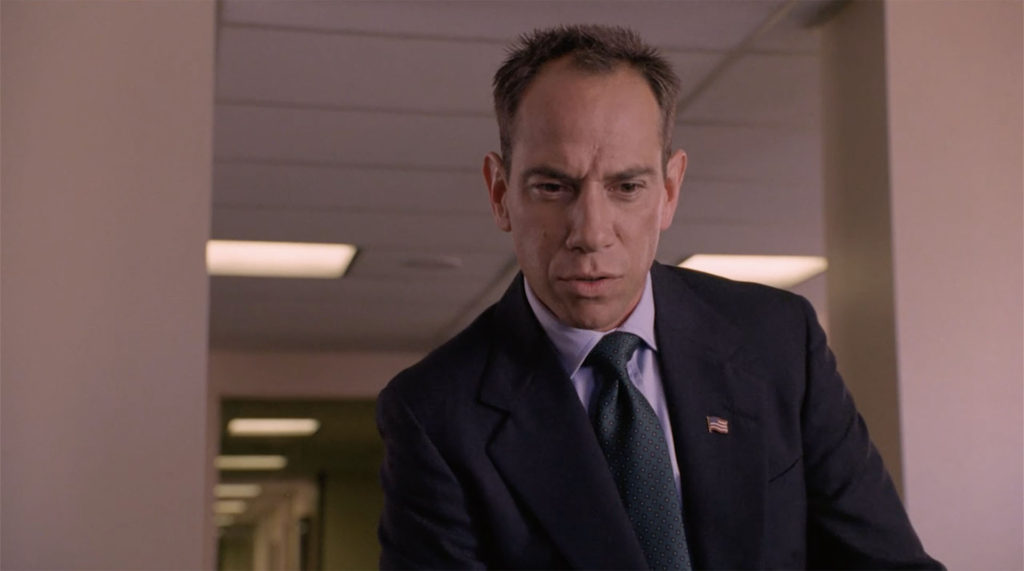
[French] You have a very young following, Mr. Lynch. Are you not afraid to make drugs seem desirable? There is a line in the film which says “All young Americans …”
LYNCH: Half! … Half!
[Laughter.]
“Half of the youth in America are on drugs.”
LYNCH: That was a little bit of a joke. It is very dangerous. If we didn’t want to upset anyone, we would make films about sewing, but even that could be dangerous.
[Laughter.]
So it’s hard to say. But I think, finally, in a film it is how the balance is and the feelings are.
Film exists because we can go and have experiences that would be pretty dangerous or strange for us in real life. We can go into a room and walk into a dream. It doesn’t necessarily follow that you are going to go out and start shooting heroin or taking coke. You worry about it. But I think there has to be these contrasts and strong things within a film for the total experience.
I have a question for Mr. Lynch, and maybe one for Mr. Badalamenti. Congratulations on the film. I had the impression at the end of it thatwhat I had been watching was perhaps an American nightmare, rather than the Ameri-can dream. Can you comment on that?
LYNCH: That is a good impression that you got. [Laughter.]
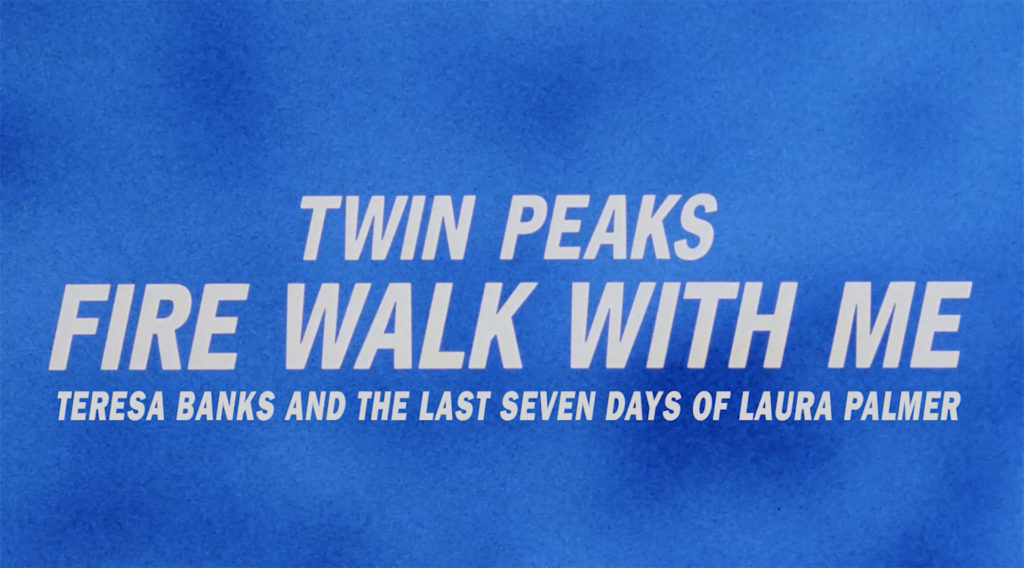
The life [?] of the American dream appears always in films. We are very aware of the idea of the this. You are playing with the whole idea of family and social conscience. Are you trying to attack the American dream?
LYNCH: No, I was trying to make the story of Teresa Banks [who is murdered at the start] and the last seven days of Laura Palmer. [Applause.]
Mr Badalamenti, to me this film’ also has elements of horror, real gothic horror. In your writing of the score, did you consider that as an element of the film?
BADALAMENTI: Actually, I think the scoring is more darkness than horror. We imply power through the darkness of the music. At least, that is what the intention was.
David Lynch, as a filmmaker, do you feel any responsibility for putting such violence in your movies?
LYNCH: That is the same answer I’m going to give you that the other gentleman got into. I think that it is very dangerous […] that we are attacking films for violence and not doing a whole lot in the world for violence. Film is a safe place to have experiences. Violence exists; it has a major part in a lot of fantastic stories. If [the film] was championing violence it would be one thing, but I don’t think it is. I believe in very strong films and I don’t apologize to them one bit, as long as there is a balance to the thing.
[French] I like the film very much and I haven’t seen the television series.
LYNCH: Fantastic. I will have a lunch with you later on. [Laughter.]
[French] Question to the scriptwriter and to Mr David Lynch. What influence did working with familiar characters have on the writing, the scoring and the directing?
ENGELS: Writing for a film as opposed to writing for a television series didn’t feel that much different. You’re obviously not restrained by an hour and 14 pages to an act. But other than that, it was the same people and you have more time and can be more intense about these people.
BADALAMENTI: Musically speaking, it might be a shade broader and just a little larger than the approach on the television series. But very similar to the characters and the style.
LYNCH: What was the question?
[The question is repeated.]
LYNCH: It didn’t affect it so very much at all. There are obviously some things we couldn’t do on television that we did in the film, but I was always amazed at how much we could do in television. As well, we were shooting the whole series on film, editing it on film and mixing it just like on film, so the differences were not so great.
Mr. Lynch, given [your responses to] some of the other questions this morning, and from talking to you in the past and at other press conferences on other films, I know that when people raise issues about the symbolism that we think we see in your films you like to let things slide. You have glib answers and you’re very clever. A couple of examples of that this morning were when the Australian gentleman was asking about whether this was the American nightmare versus the American dream. I personally have great discomfort at the end of the film because of what I see as a sort of puritanical, religious, right-wing attitude to the end of the story. Now, I may be making this up in my own mind. The point is that I feel that we are not allowed to ask you these questions because we won’t get answers. And I am wondering if it is because you won’t talk about it or you don’t want to think about it?
LYNCH: I don’t like to give my interpretations because… um, um… because if I wasn’t around, you’d have to make up your own interpretations of what you see on the screen. And, ah, I have my own version of everything and when I’m working I answer them myself. But when it’s over, you set it free and it’s on its own and everyone is allowed to enjoy their own interpretation. And I’m against a kind of film that would make absolutely one interpretation available.
I think it is fair to say that everyone is in love with Twin Peaks [the series] except a few select idiots who have Nielson boxes in their homes back home. What can we expect for the future of Twin Peaks on television and could you also give us a brief description on what is happeningwith “Ronnie Rocket” and “One Saliva Bubble”?
LYNCH: I can tell you probably for sure that Twin Peaks on television is gone. But, like I said earlier on, I love this world. The jury is out on whether or not we will ever be able to go in there again. But for me there are still open ends and clues, and I’d be excited to try and find out what could be going on. Now, what was the other question?
What is happening with “Ronnie Rocket” and “One Saliva Bubble”?
LYNCH: I’m not going to do “Ronnie Rocket”, or at least I’m not going to do it right away. I think I may be doing “One Saliva Bubble”, but I’m not one hundred per cent on that. “One Saliva Bubble” is a very wacko, infantile, bad-humour kind of film.
I would like to hear the normal voice of Mr. Anderson. I was also wondering if you could explain the shooting of the dream sequence. The atmosphere of this dream is amazing.
ANDERSON: Well, here’s my normal voice.
[Laughter.]
What was the second part about? Do you mean technically? We had someone reading the lines offstage frontwards and I would translate them backwards and we would film that backwards. Then, when we showed it forwards two negatives made a positive.
[Anderson then gives example of speaking backwards. Cheers.]
[French] Mr Lynch, by retaking, reusing, characters from series that you have made, is it either a lack of inspiration or you wanted some kind of time-out?
LYNCH: Well, I think that there are some things in there which, in my opinion, are fairly original and, as I said before, I love the characters and the world. When we started writing this thing, we didn’t think of it as rehashing some old thing. We thought about going back into a certain world we love and enjoying a story there. It was, for me, an incredible place to be.
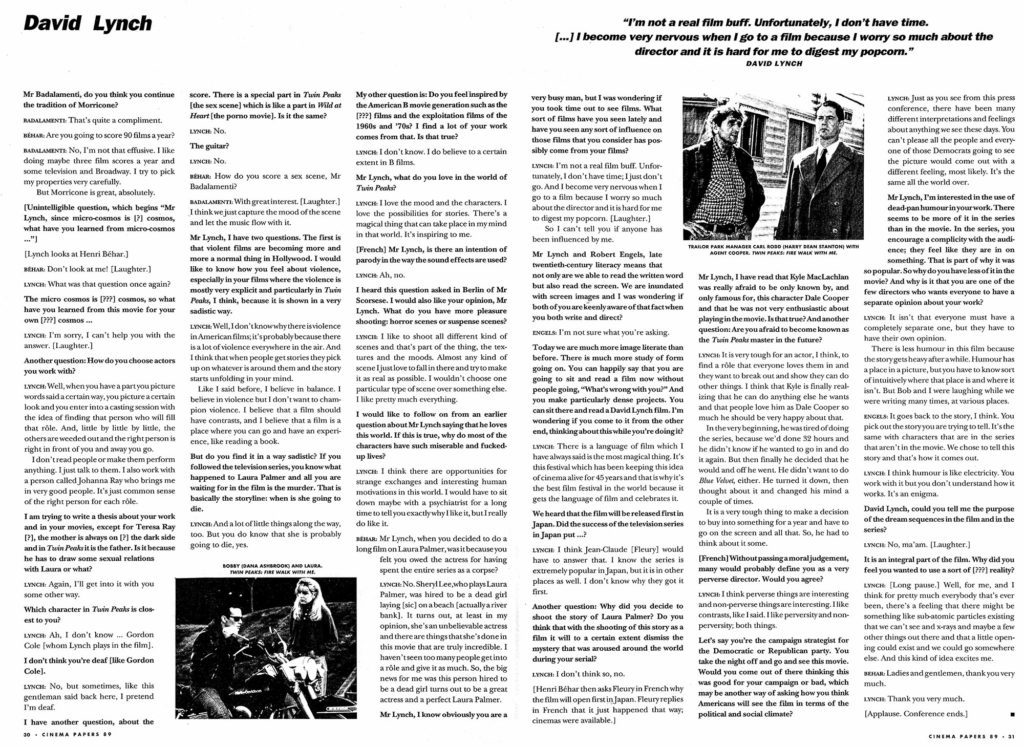
Mr. Badalamenti, do you think you continue the tradition of Morricone?
BADALAMENTI: That’s quite a compliment.
BEHAR: Are you going to score 90 films a year?
BADALAMENTI: No, I’m not that effusive. I like doing maybe three film scores a year and some television and Broadway. I try to pick my properties very carefully. But Morricone is great, absolutely.
[Unintelligible question, which begins “Mr. Lynch, since micro-cosmos is [?] cosmos, what have you learned from micro-cosmos …]
[Lynch looks at Henri Behar.]
BEHAR: Don’t look at me! [Laughter.]
LYNCH: What was that question once again? The micro cosmos is [???] cosmos, so what have you learned from this movie for your own [???] cosmos …
LYNCH: I’m sorry, I can’t help you with the answer. [Laughter.]
Another question: How do you choose actors you work with?
LYNCH: Well, when you have a part you picture words said a certain way, you picture a certain look and you enter into a casting session with the idea of finding that person who will fill that role. And, little by little by little, the others are weeded out and the right person is right in front of you and away you go. I don’t read people or make them perform anything. I just talk to them. I also work with a person called Johanna Ray who brings me in very good people. It’s just common sense of the right person for each role.
I am trying to write a thesis about your work and in your movies, except for Teresa Ray [?], the mother is always on [?] the dark side and in Twin Peaks it is the father. Is it because he has to draw some sexual relations with Laura or what?
LYNCH: Again, I’ll get into it with you some other way.
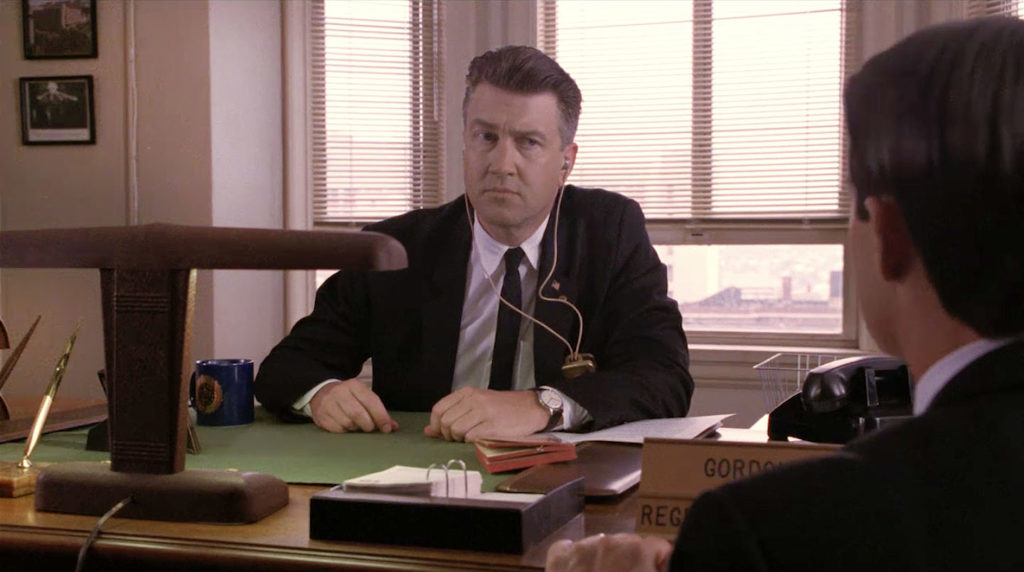
Which character in Twin Peaks is closest to you?
LYNCH: Ah, I don’t know … Gordon Cole [whom Lynch plays in the film] .
I don’t think you’re deaf [like Gordon Cole].
LYNCH: No, but sometimes, like this gentleman said back here, I pretend I’m deaf.
I have another question, about the score. There is a special part in Twin Peaks [the sex scene] which is like a part in Wild at Heart [the porno movie]. Is it the same?
LYNCH: No.
The guitar?
LYNCH: No.
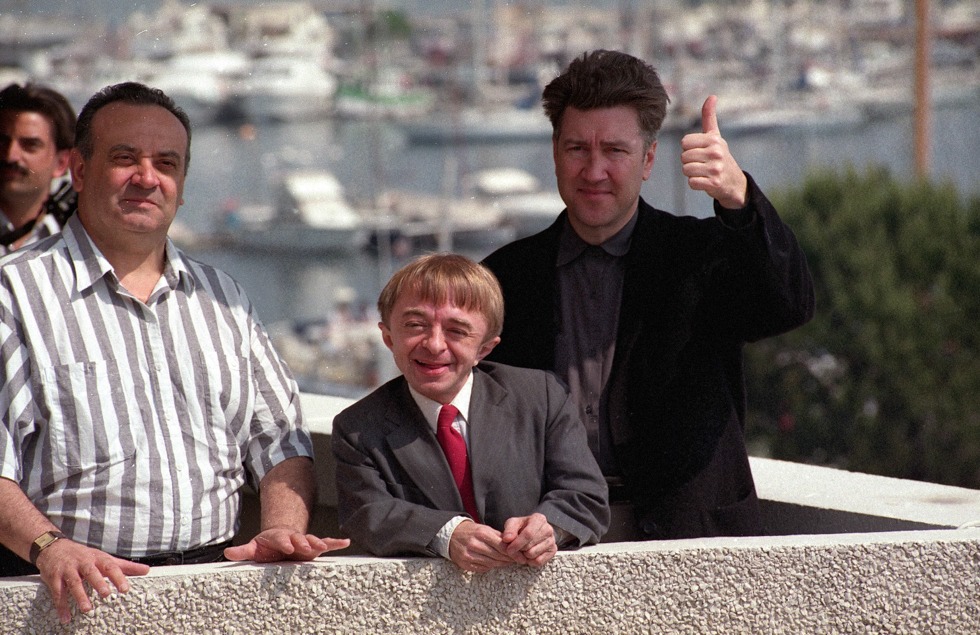
BEHAR: How do you score a sex scene, Mr Badalamenti?
BADALAMENTI: With great interest. [Laughter.] I think we just capture the mood of the scene and let the music flow with it.
Mr Lynch, I have two questions. The first is that violent films are becoming more and more a normal thing in Hollywood. I would like to know how you feel about violence, especially in your films where the violence is mostly very explicit and particularly in Twin Peaks, I think, because it is shown in a very sadistic way.
LYNCH: Well, I don’t know why there is violence in American films; it’s probably because there is a lot of violence everywhere in the air. And I think that when people get stories they pick up on whatever is around them and the story starts unfolding in your mind. Like I said before, I believe in balance. I believe in violence but I don’t want to champion violence. I believe that a film should have contrasts, and I believe that a film is a place where you can go and have an experience, like reading a book.
But do you find it in a way sadistic? If you followed the television series, you know what happened to Laura Palmer and all you are waiting for in the film is the murder. That is basically the storyline: when is she going to die.
LYNCH: And a lot of little things along the way, too. But you do know that she is probably going to die, yes.
My other question is: Do you feel inspired by the American B movie generation such as the [???] films and the exploitation films of the 1960s and ’70s? I find a lot of your work comes from that. Is that true?
LYNCH: I don’t know. I do believe to a certain extent in B films.
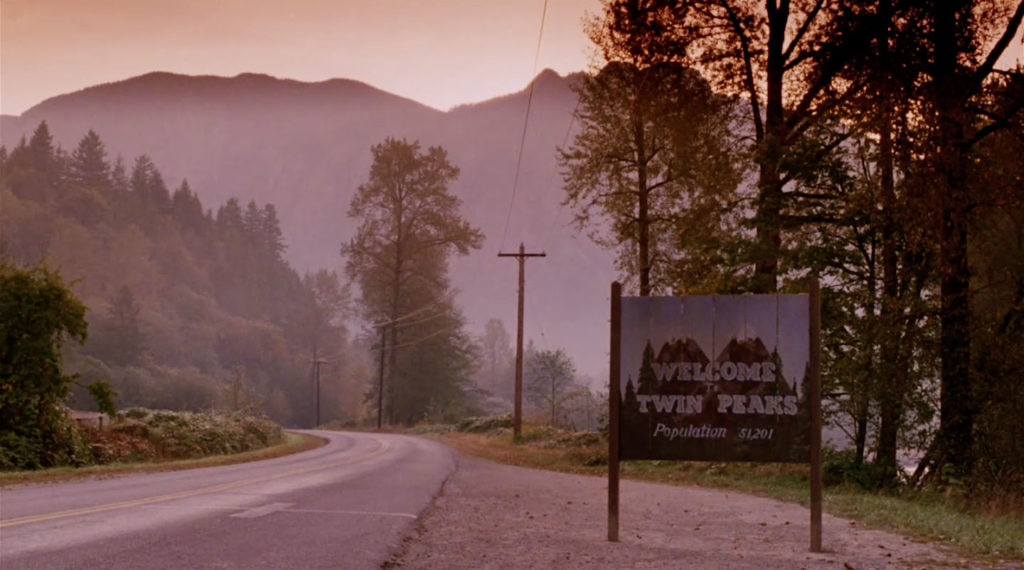
Mr Lynch, what do you love in the world of Twin Peaks?
LYNCH: I love the mood and the characters. I love the possibilities for stories. There’s a magical thing that can take place in my mind in that world. It’s inspiring to me.
[French] Mr Lynch, is there an intention of parody in the way the sound effects are used?
LYNCH: Ah, no.
I heard this question asked in Berlin of Mr. Scorsese. I would also like your opinion, Mr. Lynch. What do you have more pleasure shooting: horror scenes or suspense scenes?
LYNCH: I like to shoot all different kind of scenes and that’s part of the thing, the textures and the moods. Almost any kind of scene I just love to fall in there and try to make it as real as possible. I wouldn’t choose one particular type of scene over something else. I like pretty much everything.
I would like to follow on from an earlier question about Mr. Lynch saying that he loves this world. If this is true, why do most of the characters have such miserable and fucked-up lives?
LYNCH: I think there are opportunities for strange exchanges and interesting human motivations in this world. I would have to sit down maybe with a psychiatrist for a long time to tell you exactly why I like it, but I really do like it.
BEHAR: Mr. Lynch, when you decided to do a long film on Laura Palmer, was it because you felt you owed the actress for having spent the entire series as a corpse?
LYNCH: No. Sheryl Lee, who plays Laura Palmer, was hired to be a dead girl laying [sic] on a beach [actually a river bank]. It turns out, at least in my opinion, she’s an unbelievable actress and there are things that she’s done in this movie that are truly incredible. I haven’t seen too many people get into a role and give it as much. So, the big news for me was this person hired to be a dead girl turns out to be a great actress and a perfect Laura Palmer.
Mr Lynch, I know obviously you are a very busy man, but I was wondering if you took time out to see films. What sort of films have you seen lately and have you seen any sort of influence on those films that you consider has possibly come from your films?
LYNCH: I’m not a real film buff. Unfortunately, I don’t have time; I just don’t go. And I become very nervous when I go to a film because I worry so much about the director and it is hard for me to digest my popcorn. [Laughter.] So I can’t tell you if anyone has been influenced by me.
Mr Lynch and Robert Engels, late twentieth-century literacy means that not only are we able to read the written word but also read the screen. We are inundated with screen images and I was wondering if both of you are keenly aware of that fact when you both write and direct?
ENGELS: I’m not sure what you’re asking.
Today we are much more image literate than before. There is much more study of form going on. You can happily say that you are going to sit and read a film now without people going, “What’s wrong with you?” And you make particularly dense projects. You can sit there and read a David Lynch film. I’m wondering if you come to it from the other end, thinking about this while you’re doing it?
LYNCH: There is a language of film which I have always said is the most magical thing. It’s this festival which has been keeping this idea of cinema alive for 45 years and that is why it’s the best film festival in the world because it gets the language of film and celebrates it.
We heard that the film will be released first in Japan. Did the success of the television series in Japan put …?
LYNCH: I think Jean-Claude [Fleury] would have to answer that. I know the series is extremely popular in Japan, but it is in other places as well. I don’t know why they got it first.
Another question: Why did you decide to shoot the story of Laura Palmer? Do you think that with the shooting of this story as a film it will to a certain extent dismiss the mystery that was aroused around the world during your serial?
LYNCH: I don’t think so, no.
[Henri Behar then asks Fleury in French why the film will open first in Japan. Fleury replies in French that it just happened that way; cinemas were available.]
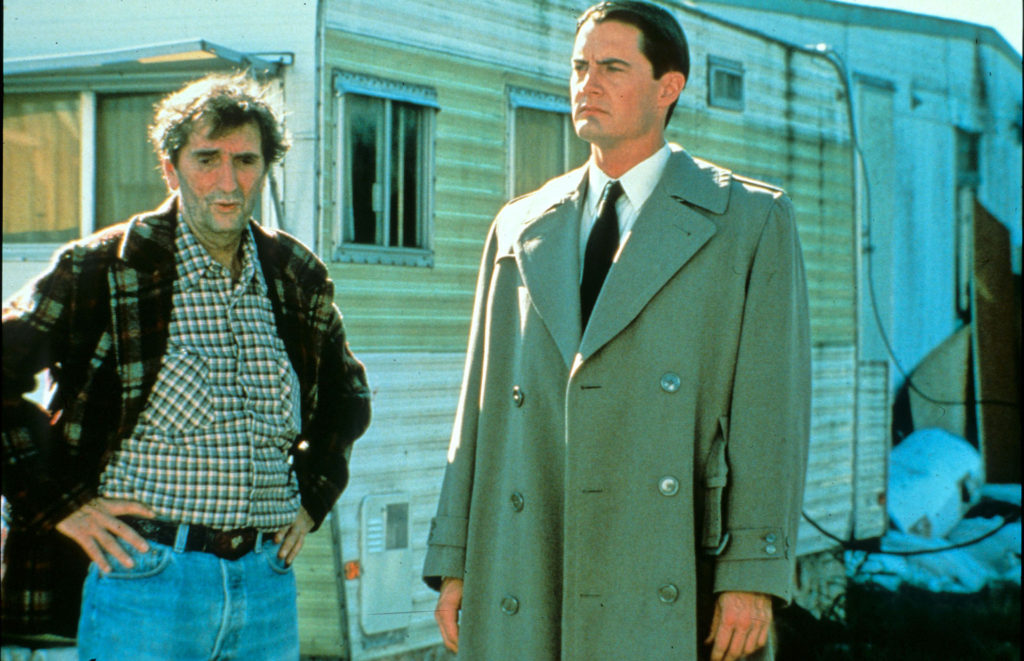
Mr. Lynch, I have read that Kyle MacLachlan was really afraid to be only known by, and only famous for, this character Dale Cooper and that he was not very enthusiastic about playing in the movie. Is that true? And another question: Are you afraid to become known as the Twin Peaks master in the future?
LYNCH: It is very tough for an actor, I think, to find a role that everyone loves them in and they want to break out and show they can do other things. I think that Kyle is finally realizing that he can do anything else he wants and that people love him as Dale Cooper so much he should be very happy about that. In the very beginning, he was tired of doing the series, because we’d done 32 hours and he didn’t know if he wanted to go in and do it again.
But then finally he decided that he would and off he went. He didn’t want to do Blue Velvet, either. He turned it down, then thought about it and changed his mind a couple of times. It is a very tough thing to make a decision to buy into something for a year and have to go on the screen and all that. So, he had to think about it some.
[French] Without passing a moral judgement, many would probably define you as a very perverse director. Would you agree?
LYNCH: I think perverse things are interesting and non-perverse things are interesting. I like contrasts, like I said. I like perversity and non-perversity; both things.
Let’s say you’re the campaign strategist for the Democratic or Republican party. You take the night off and go and see this movie. Would you come out of there thinking this was good for your campaign or bad, which may be another way of asking how you think Americans will see the film in terms of the political and social climate?
LYNCH: Just as you see from this press conference, there have been many different interpretations and feelings about anything we see these days. You can’t please all the people and every-one of those Democrats going to see the picture would come out with a different feeling, most likely. It’s the same all the world over.
Mr. Lynch, I’m interested in the use of dead-pan humour in your work. There seems to be more of it in the series than in the movie. In the series, you encourage a complicity with the audience; they feel like they are in on something. That is part of why it was so popular. So why do you have less of it in the movie? And why is it that you are one of the few directors who wants everyone to have a separate opinion about your work?
LYNCH: It isn’t that everyone must have a completely separate one, but they have to have their own opinion. There is less humour in this film because the story gets heavy after awhile. Humour has a place in a picture, but you have to know sort of intuitively where that place is and where it isn’t. But Bob and I were laughing while we were writing many times, at various places.
ENGELS: It goes back to the story, I think. You pick out the story you are trying to tell. It’s the same with characters that are in the series that aren’t in the movie. We chose to tell this story and that’s how it comes out.
LYNCH: I think humour is like electricity. You work with it but you don’t understand how it works. It’s an enigma.
David Lynch, could you tell me the purpose of the dream sequences in the film and in the series?
LYNCH: No, ma’am. [Laughter.]
It is an integral part of the film. Why did you feel you wanted to use a sort of [???] reality?
LYNCH: [Long pause.] Well, for me, and I think for pretty much everybody that’s ever been, there’s a feeling that there might be something like sub-atomic particles existing that we can’t see and x-rays and maybe a few other things out there and that a little open-ing could exist and we could go somewhere else. And this kind of idea excites me.
BEHAR: Ladies and gentlemen, thank you very much.
LYNCH: Thank you very much. [Applause. Conference ends.]
